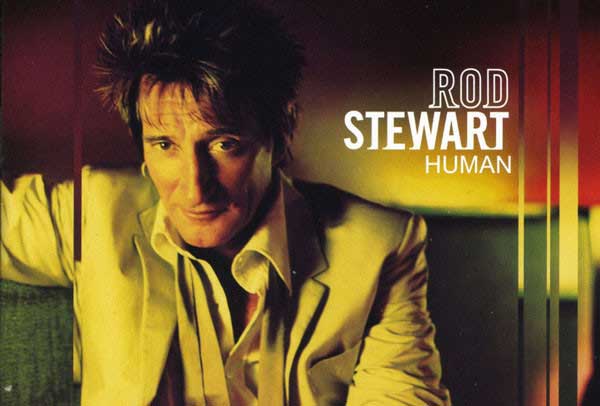Released on 12 March 2001, Rod Stewart’s Human album was a high-gloss affair. At 56 years of age and with 19 solo albums now behind him, it also marked a critical moment in his career: though Stewart used the album to remind fans of his rock’n’roll glory days, Human also set the stage for his golden years.
Listen to Human here.
“My assumption was that I was completely finished”
At the start of the 21st century, the future looked uncertain for Stewart. Though a beloved rock veteran, his last hit, Forever Young, was more than a decade old, and the dry spell had led fans, critics and even Stewart himself to question his future. “Indeed, my assumption was that I was completely finished as a songwriter,” the London-based singer reflected in Rod: The Autobiography.
Yet Stewart’s career was built on changing his sound. After his mod-era 60s recordings and career-defining work with Faces in the early 70s, he found solo success with crossover hits like the disco-infused Do Ya Think I’m Sexy, in 1978, and the new wave-calibrated Young Turks in 1981. Continuing that tradition, Human – the first solo album on which Stewart doesn’t have a single songwriting credit – took a leap into the adult contemporary world.
Laying its influences bare
To help round out its 11 songs, Atlantic Records enlisted an array of songwriters and producers, along with legendary guitarists Slash (Guns N’ Roses), Mark Knopfler and Jesse Johnson (The Time), to usher Stewart’s voice into the new millennium. Following in the footsteps of contemporary soul and R&B artists like TLC, Toni Braxton and Destiny’s Child, Human is no doubt a product of its era, and it lays its influences bare.
Take the opening title track. From the outset, the rhythm and tone set themselves apart from anything we’d previously heard from Stewart, but you don’t have to go far to find its inspiration. The orchestral plucks and synthesised beats feel radio-ready, recalling Destiny’s Child’s Bills, Bills, Bills, while the song’s refrain could very well be cut from the same cloth as Christina Aguilera’s Genie In A Bottle. When Slash’s guitar solo comes in, you find the soul-rock fusion that made Rob Thomas and Santana’s Smooth an instant success.




